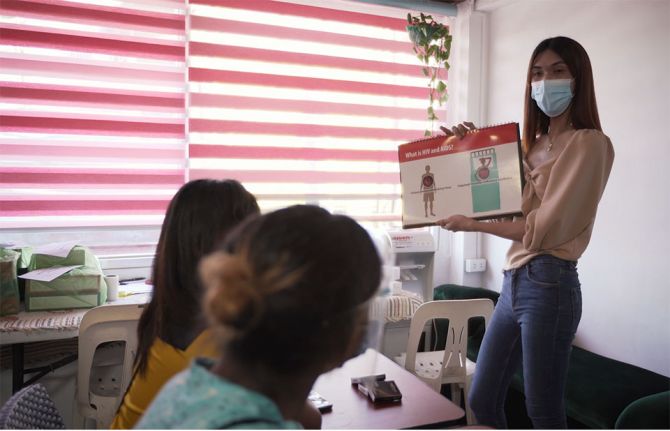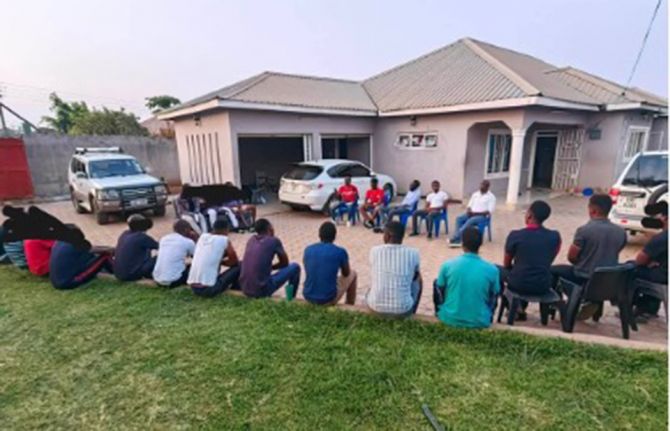

Update
UNAIDS and Malaysia launch joint data web platform
14 September 2017
14 September 2017 14 September 2017UNAIDS and the Ministry of Health of Malaysia have launched a joint web platform that aims to strengthen the generation of strategic information and the use of national, subnational and key population data for evidence-informed programming.
The platform, which is hosted and supported by the UNAIDS regional data hub, was launched by Noor Hisham Abdullah, Director-General of Malaysia’s Ministry of Health, and Eamonn Murphy, Director of the UNAIDS Regional Support Team for Asia and the Pacific, at the 5th Asia Pacific Conference on Public Health, which ended on 13 September in Kuching, Malaysia.
Malaysia has made significant progress in its response to HIV. This progress has been due to the strategic investments the country has made in making services available for key populations, including people who inject drugs, men who have sex with men, transgender people and sex workers.
Health authorities recognize the key role that data and strategic information play in the achievements they have made, but underline that the HIV epidemic is constantly changing and that there is a need to track the virus. The new partnership will ensure that up-to-date strategic information helps to set evidence-informed priorities and a quick response to the evolving dynamics of the country’s HIV epidemic.
Quotes
“Today’s launch and new partnership between UNAIDS and the Ministry of Public Health harnesses the power of a data revolution to Fast-Track the response to HIV. Malaysia is the very first country in the region to take this step forward, and we hope many others will follow.”
“Malaysia is committed to making smart investments in key services for people most at risk and in the places they live and work. This new partnership with UNAIDS will ensure that we have the strategic information we need at our fingertips.”
Related information
Region/country

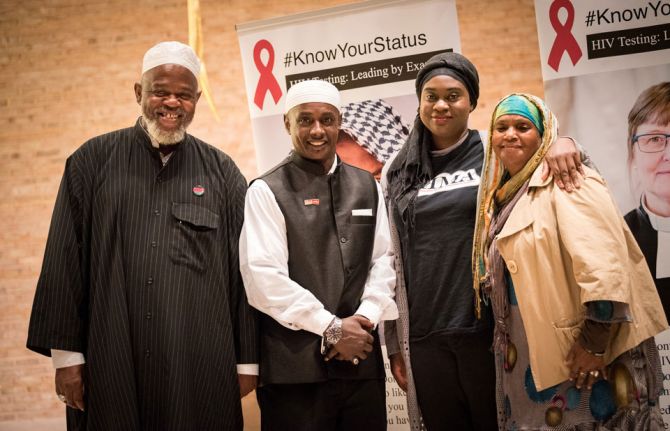
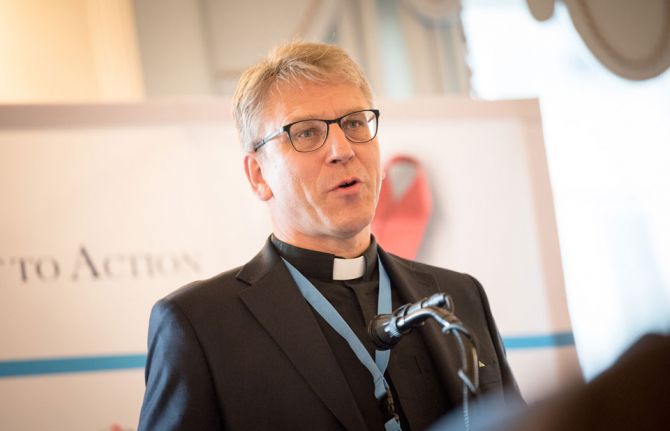
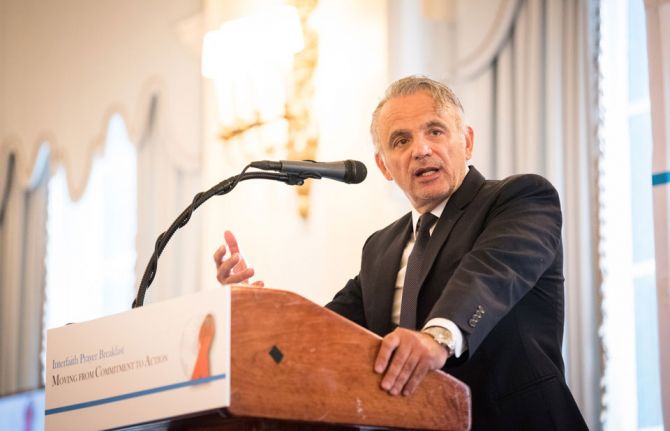
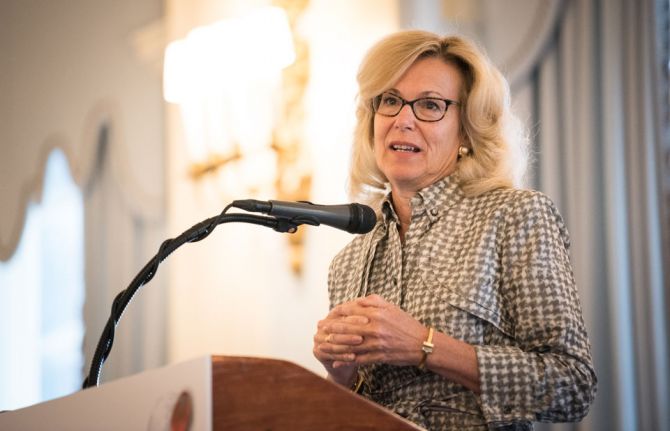
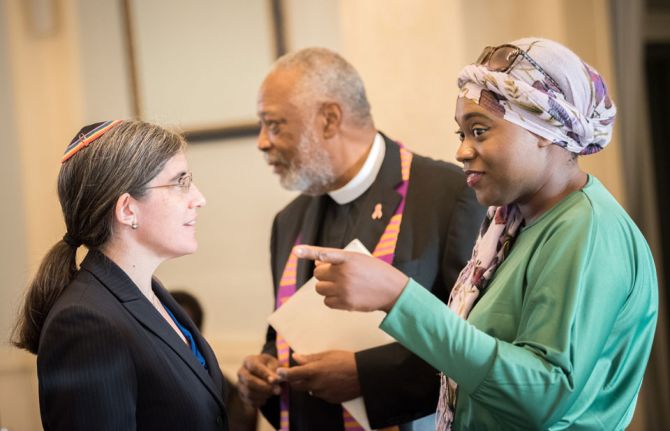
Update
Faith on the Fast-Track for children
14 September 2017
14 September 2017 14 September 2017Faith-based organizations have played a critical role in responding to HIV since the start of the epidemic more than 35 years ago. Their position of trust at the heart of communities has allowed them to provide services and support that extends beyond the reach of many public-sector health systems.
Faith-based organizations are now at the heart of a special mission, issuing a call to action to ensure that infants, children and young people have access to HIV prevention, testing and treatment.
There are good reasons for the call to action: UNAIDS’ latest report, Ending AIDS: progress towards the 90–90–90 targets, shows that in 2016 there were 2.1 million children aged 0–14 years living with HIV and less than half had access to treatment. Without treatment, around one third of children living with HIV will die by their first birthday and half by their second.
One of the main reasons that children and young people are not accessing treatment is the low HIV detection rates. In 2016, only 43% of babies born to mothers living with HIV were tested for HIV within the first two months of life. Without knowing whether a child has HIV it is impossible to access treatment.
The UNAIDS report also shows that 2.1 million adolescents aged 10–19 years were living with HIV, a 30% increase from 2005, highlighting the urgent need to ensure that adolescents are freely able to access age-appropriate HIV services, including HIV prevention, treatment and care.
Concerted global efforts are being made to address these disparities. In 2016, United Nations Member States committed to putting special emphasis on providing 1.6 million children with access to antiretroviral therapy by 2018 and ensuring that children, adolescents and adults living with HIV know their status and are immediately offered and sustained on affordable and accessible quality treatment.
These ambitious targets, the Super-Fast-Track approach for children, have been incorporated into the Start Free, Stay Free, AIDS Free framework to galvanize action, led by UNAIDS, the United States President’s Emergency Plan for AIDS Relief (PEPFAR) and partners, which seeks to put the world firmly on a path to ending AIDS among children.
The engagement of the faith community is paramount to achieving these goals and in 2016 faith groups held a series of consultations at the Vatican on how to accelerate action. To further strengthen relationships and forge new partnerships, the World Council of Churches–Ecumenical Advocacy Alliance, in collaboration with UNAIDS, PEPFAR and the United Nations Interagency Task Force on Religion and Development, hosted an interfaith prayer breakfast on 13 September on the sidelines of the 72nd session of the United Nations General Assembly in New York, United States of America.
Faith leaders from a multitude of religions came together at the event, all of whom agreed to support a coordinated faith-based effort in responding to HIV. Different calls to action and declarations were formulated calling for strong follow-up actions, recommendations and commitments to ensure a Fast-Track faith-based response to make HIV testing and treatment available for children and adolescents by 2020.
Quotes
“We are literally talking about survival. The survival of children which depends on effective action by the nations of the world. What more noble purpose could United Nations be united around. We are each called to look to our various faiths, as the foundation for our response to HIV.”
“Faith-based organizations have been vital to the global AIDS response since the very beginning, saving and improving millions of lives. As we Fast-Track toward achieving epidemic control, the powerful leadership and unique reach of the faith community is as important as ever.”
“Children should be at the centre of our attention and work. They are the most vulnerable, and at the same time the least responsible for this situation. So let’s do this together – we can. May God give us the courage.”
Our partnership is key. Faith-based organizations are not just a part of the response they are at the core of it. It is clear that we need to step up action to achieve the paediatric targets.
“Our compassion must be stirred for children affected by HIV, especially children raising other children because their parents died of AIDS. We need to support the quiet heroes whose names are never mentioned and yet they are the ones caring for those children. Can you imagine the day when the chapter on AIDS is closed and a new chapter is written?”
Related

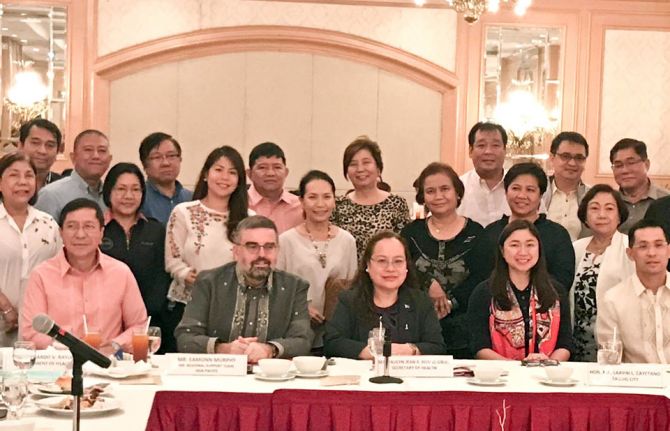
Update
Metro Manila city leaders commit to intensifying HIV response
11 September 2017
11 September 2017 11 September 2017Mayors and other city leaders from the 17 cities that make up the National Capital Region in the Philippines pledged to make the HIV epidemic a public health emergency requiring multisectoral strategies and a full provision of resources. The city representatives recently signed a city HIV resolution during a dinner meeting in Manila hosted by the Secretary of the Department of Health, Paulyn Jean Rosell-Ubial.
A recent UNAIDS report, Ending AIDS: progress towards the 90–90–90 targets, has helped to galvanize this action. The report found that the number of new HIV infections in the Philippines has risen by 140% in the past six years and the country has the fastest growing HIV epidemic in the Asia and the Pacific region. Health authorities say that the 17 cities in the National Capital Region accounted for more than 40% of reported HIV cases in the country.
Ms Rosell-Ubial stated that she had raised this alarm as early as last year, when she took office, calling the situation a national emergency. She appealed to the mayors and city officials of Metro Manila for their help in delivering crucial services to community groups and key populations. The Mayor of Taquig City and Chair of the League of Cities, Laarni “Lani” Cayetano, expressed her support for the initiative and underlined the efforts of Taguig City in providing HIV services.
The Secretary of Health expressed appreciation for the personal support of Eamonn Murphy, UNAIDS Director of the Regional Support Team for Asia and the Pacific, and for the long-term contribution from the UNAIDS country office.
Mr Murphy praised the strong leadership of the Secretary of Health and the commitment by cities in the Manila region and pledged to help mobilize technical support, and is in discussion with development partners regarding these efforts.
The city HIV resolution recognized that the 2030 Agenda for Sustainable Development committed countries to ensuring healthy lives and the well-being of all citizens, as well as ending AIDS by 2030. It commits cities to increasing financial investments and accelerating the implementation of high-impact programmes, including ensuring quick diagnosis and entry into treatment, HIV services tailored to the needs of gay men and other men who have sex with men and innovative prevention programmes, including targeted outreach and pre-exposure prophylaxis. The resolution also promised to eliminate HIV-related stigma and discrimination and other human rights violations that prevent key populations and people living with HIV from accessing services.
Quotes
“We can buy all the drugs that we need. We can buy all the test kits that we need. We can find the government funding to do this, but what we need is for our cities to join with the Department of Health in making sure that we deliver through new and innovative delivery systems. Without this partnership, we won't reach our goals of 90–90–90 and 100% elimination of mother-to-child transmission by 2020.”
“I am confident that all cities in the National Capital Region will heed the call to take the actions necessary to reach our 90–90–90 goals by 2020. As the Chair of the Philippines League of Cities, I call on all cities in the country to join us and act now.”
“The Philippines responded quickly and innovatively in partnership with the community to the first wave of the epidemic, and through strong, pragmatic and committed leadership is showing the nation has the capacity and the resolve to meet the challenges presented by the new wave of growing infections, particularly among young gay men and other men who have sex with men and transgender people.”
Region/country
Related

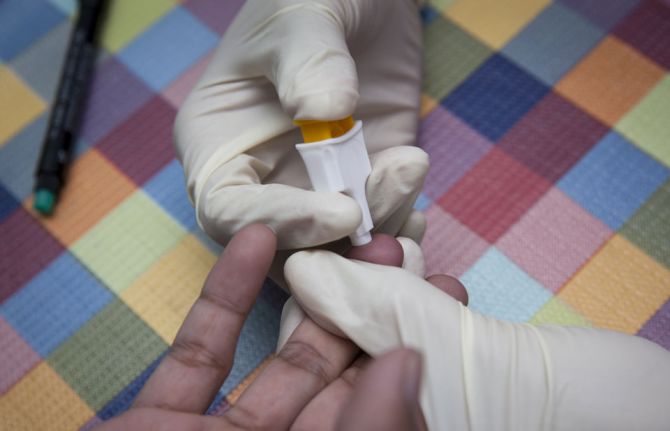
Update
WHO, UNAIDS statement on HIV testing services: new opportunities and ongoing challenges
29 August 2017
29 August 2017 29 August 2017The World Health Organization (WHO) and UNAIDS have released a joint statement on HIV testing services that reinforces two key principles that ensure a human rights-based and public health approach to HIV testing.
The statement says that HIV testing, no matter how it is delivered, must always respect personal choice and adhere to ethical and human rights principles. It makes it clear that WHO and UNAIDS do not recommend mandatory, compulsory or coerced HIV testing of individuals on public health grounds.
The statement also explains that in order to minimize the risk of HIV misdiagnosis, all providers of HIV testing services must use HIV test kits and testing procedures that meet WHO quality standards or other equivalent national or regional quality standards. Testing procedures must be validated in each setting, depending on the population HIV prevalence. Regular external quality assurance should also be in place in order to rapidly detect potential causes of HIV misdiagnosis.
The position of WHO and UNAIDS is that no one should be given an HIV-positive diagnosis on the basis of a single positive HIV test result. National HIV testing procedures should be followed to confirm an HIV-positive test result and everyone should be re-tested before starting on lifelong antiretroviral therapy.
The 2017 UNAIDS report Ending AIDS: progress towards the 90–90–90 targets estimates that only 70% of people living with HIV are aware of their HIV status. This is the first of the 90–90–90 targets, whereby, by 2020, 90% of people living with HIV know their status, 90% of people living with HIV who know their status are receiving antiretroviral treatment and 90% of people on treatment have suppressed viral loads.
Quotes
“Scaling up access to HIV testing is critical to ending the AIDS epidemic by 2030, offering everyone the right to know their HIV status through high-quality national HIV testing programmes that respect every individual’s dignity and human rights.”
WHO/UNAIDS 2017 Statement
Related

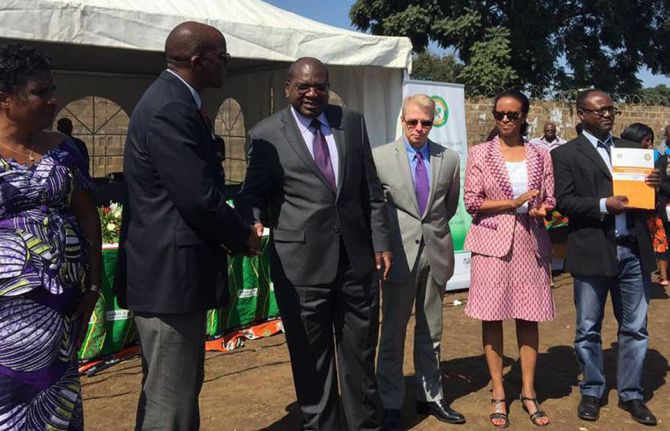
Update
Zambia charts a road map to achieve bold Fast-Track commitments
23 August 2017
23 August 2017 23 August 2017Zambia has launched its AIDS Response Fast-Track Strategy 2017–2021, which provides a road map to achieve the global Fast-Track prevention and 90–90–90 targets whereby 90% of people living with HIV know their HIV status, 90% of people who know their HIV-positive status are accessing treatment and 90% of people on treatment have suppressed viral loads.
Building on the results achieved so far, the strategy has three main objectives: establish clear approaches to accelerate the HIV response for everyone, including key populations; set yearly targets at the national and provincial levels; and estimate costs and the resources gap.
So far, the government’s commitment has had significant impact: new HIV infections have decreased from 69 000 in 2005 to 59 000 in 2016 and coverage of pregnant women receiving antiretroviral medicines to prevent mother-to-child transmission of HIV has increased to 87%. Efforts to reach the most vulnerable people are being made, and new national policies outline targets and strategies to intensify prevention services in all the 10 provinces of the country.
The strategy provides for specific facility-based and community-led programmes, such as accelerating HIV testing and counselling in districts with high HIV prevalence, targeting key populations and integrating testing with other health-care services.
The strategy will guarantee access to HIV treatment and care services and improve HIV testing services. One of the treatment goals emphasized in the strategy is the total elimination of new HIV infections among children.
The strategy was developed by a technical task team led by the National HIV/AIDS/STI/TB Council and UNAIDS.
Quotes
“Prevention of new HIV infections is a national priority. The government is fully committed to scaling up combination prevention programmes that leave no one behind and to reach its targets by 2020, and ultimately eliminate new HIV infections by 2030.”
“I commend the Government of Zambia for its political commitment to increase access to HIV treatment. We all have a responsibility to reach the 90–90–90 targets, changing the course of the AIDS epidemic for good.”
Region/country





Update
Ending stigma and discrimination in health centres in Mexico
25 August 2017
25 August 2017 25 August 2017Mexico has taken steps to strengthen access to health-care services by lesbian, gay, bisexual, transgender and intersex (LGBTI) people. A new Ministry of Health code of conduct aims to put an end to stigma and discrimination based on gender identity and sexual orientation in all health centres in the country.
Establishing guidelines and specific actions for the provision of health-care services, the code of conduct will be implemented throughout the national health system to guarantee effective access to health by respecting the dignity and autonomy of LGBTI people.
The code of conduct provides for health personnel from public health facilities to be trained in avoiding discriminatory expressions and attitudes and to respect the confidentiality of patients. Among various provisions, it clearly stipulates that so-called treatment to “cure homosexuality or transexuality” must be avoided. It establishes that health centres should maintain a policy of zero tolerance for discrimination and must investigate accusations of discrimination. Health centres should also promote ongoing sexual and reproductive health and HIV prevention campaigns focused on LGBTI people.
The code of conduct was developed through a broad participatory process that included the Coordinating Committee of the National Institutes of Health and High Specialty Hospitals, the National Center for HIV Prevention and Control, Specialized Condesa Clinic of Mexico City, the National Council for Preventing Discrimination and representatives of civil society and LGBTI organizations.
The next steps include a training process on its practical application, with the involvement of civil society and community-based organizations. The implementation will have a pilot phase and will begin in the largest cities in the country.
Quotes
“The Ministry of Health has comprehensive mechanisms that guarantee access to health care for lesbian, gay, bisexual, transgender and intersex people. I urge health staff to fulfil our constitutional mandate, that everyone should enjoy the right to health.”
“With this protocol, Mexico is taking decisive steps to ensure that health services are provided in accordance with human rights. Zero discrimination is at the heart of UNAIDS’ vision and is one of the targets of a Fast-Track response.”
Region/country

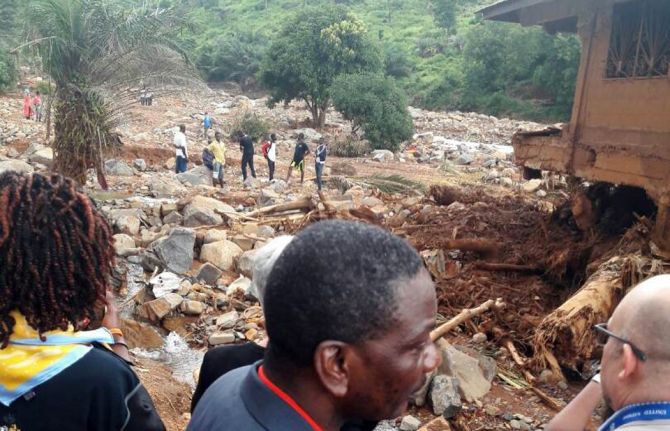
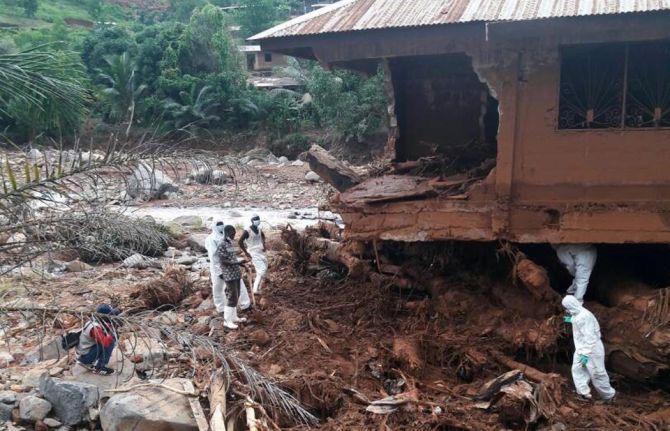
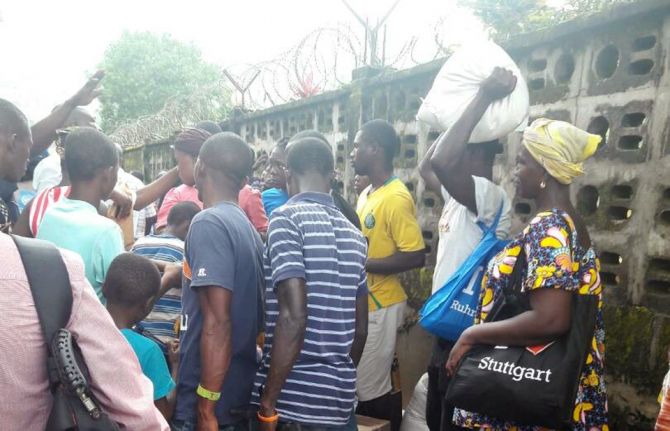
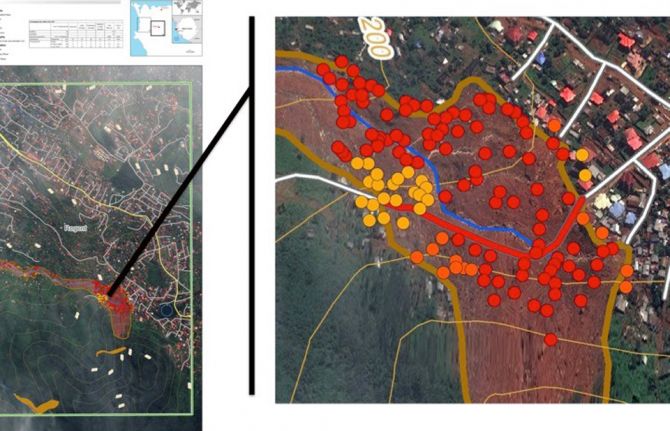
Update
UNAIDS assisting the survivors of the floods in Sierra Leone
23 August 2017
23 August 2017 23 August 2017On 14 August, heavy rains, a mudslide and flash floods destroyed hundreds of homes and left many dead, injured or missing in Sierra Leone. In all, more than 500 houses were buried and destroyed and some 6000 people were severely affected. So far, more than 500 bodies have been recovered, with the number expected to rise. A mass burial for 300 people brought the country together and hardened the commitment to collectively recover from the tragedy.
An estimated 200 people living with HIV and their families were affected, with around 54 among the dead. Relief and rescue efforts by community members and first responders immediately began providing life-saving support.
People living with HIV and people at higher risk of HIV infection often become more vulnerable in times of emergency, owing to a lack of prioritization of their needs, lack of prevention services and disruption of treatment. In addition, people living with HIV, especially with weakened immune systems, are at higher risk of contracting malaria and waterborne diseases.
In the immediate aftermath of the disaster, UNAIDS’ priority has been to ensure the continuation and scale-up of antiretroviral therapy services, provide technical support to the Network of HIV Positives in Sierra Leone (NETHIPS), generate strategic information for fundraising and facilitate access for people living with HIV to food and non-food resources. UNAIDS has been participating in the broader disaster coordination structure within the United Nations and is supporting NETHIPS in the registration of people living with HIV affected by the disaster and in finding out their immediate needs.
In the medium and long term, UNAIDS, in collaboration with the United Nations interagency team, the National HIV/AIDS Secretariat, NETHIPS and the wider national disaster response coordination unit, will ensure that people living with HIV have access to support that includes the restoration of livelihoods, shelter construction and psychosocial services.
This crisis has put into sharp focus the fragility of Sierra Leone’s post-Ebola social safety nets. It is critical that the resources required for the response to HIV be included in the emergency fundraising appeals and that the country’s HIV catch-up plan be financed and implemented effectively.
Quotes
“Entire communities have been wiped out by the disaster. We need urgent support now.”
“Humanitarian crises exacerbate the HIV epidemic—vulnerabilities are increased, services are disrupted, people are uprooted and access to HIV prevention and treatment affected, leading to new HIV infections.”
Region/country
Related

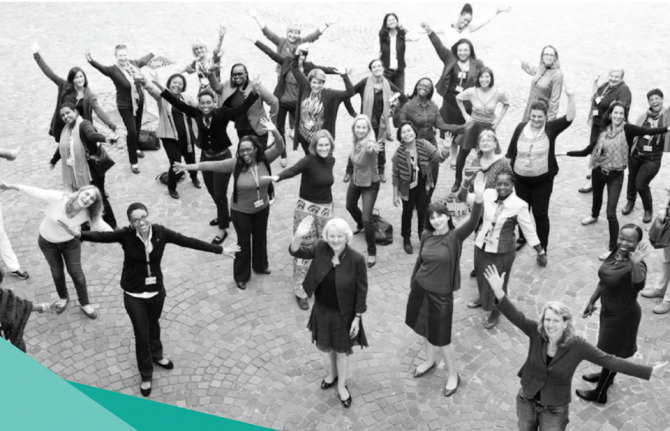
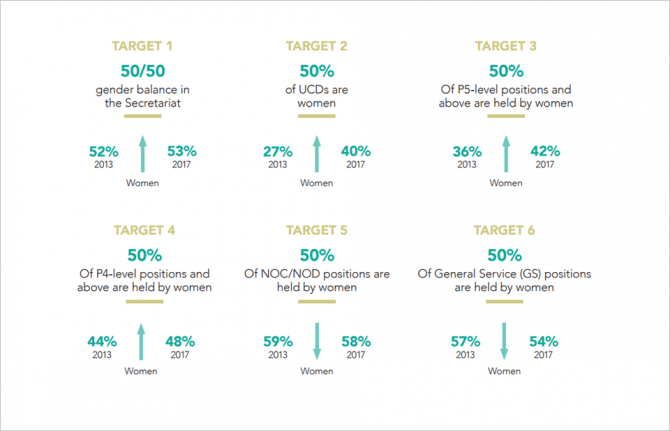
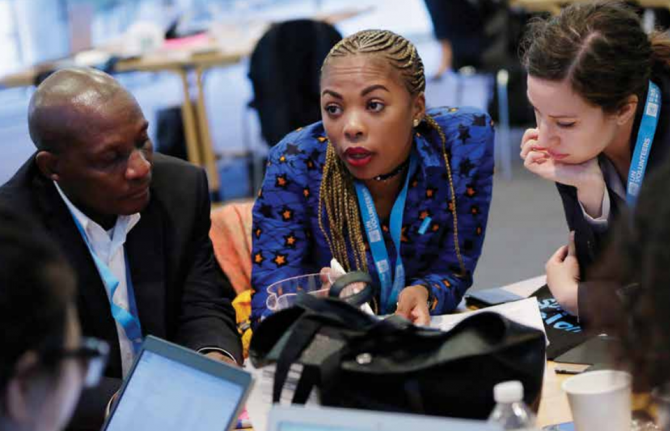
Update
UNAIDS fully compliant with UN-SWAP
22 August 2017
22 August 2017 22 August 2017UNAIDS has been recognized for meeting or exceeding all of the 15 performance indicators of the United Nations System-wide Action Plan on Gender Equality and the Empowerment of Women (UN-SWAP), a year ahead of the deadline established by the United Nations System Chief Executives Board for Coordination.
In a letter sent by Phumzile Mlambo-Ngcuka, Executive Director of UN Women, to Michel Sidibé, Executive Director of UNAIDS, the organization is commended for its significant dedication to gender equality and women’s empowerment at all levels. UNAIDS has achieved overall gender parity at the professional and higher levels and has created an enabling work environment through extended maternity leave and flexible working conditions.
The findings of UN-SWAP reaffirm UNAIDS’ role as a leader for gender equality and the empowerment of women across the United Nations system. UNAIDS meets or exceeds the requirements of 100% of the UN-SWAP performance indicators, compared to only 64% for the overall United Nations system. In addition, UNAIDS exceeds the requirements for 53% of the indicators, compared to 19% for the overall United Nations system.
Since the inception of UN-SWAP, UNAIDS has demonstrated continued progress in each annual report and has commitment to improving its UN-SWAP scoring in at least one performance indicator over this year.
UN-SWAP is a United Nations system-wide accountability framework designed to measure, monitor and drive progress towards a common set of standards for the achievement of gender equality and the empowerment of women. Sixty-five entities, departments and offices of the United Nations system report on it every year.
Quotes
“Gender equality and women’s empowerment is at the heart of ending AIDS. We are proud to have achieved all UN-SWAP performance indicators and will continue to work to achieve even better results, while sharing our experiences to inspire more and quicker progress across the United Nations system.”
Related
 “Who will protect our young people?”
“Who will protect our young people?”

02 June 2025

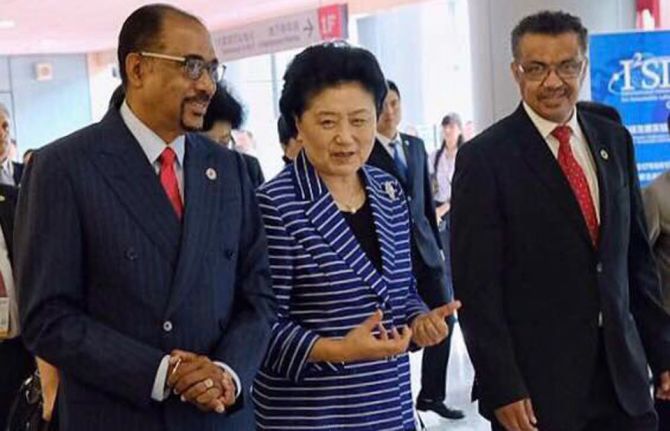
Update
China’s Belt and Road initiative to play a key role in overcoming global health challenges
21 August 2017
21 August 2017 21 August 2017Michel Sidibé, the Executive Director of UNAIDS, has urged international health leaders to prioritize health development. While giving his keynote address at the opening ceremony of the Belt and Road High Level Meeting for Health Cooperation: Towards a Health Silk Road, Mr Sidibé also expressed to the Vice-Premier of China, Liu Yandong, his appreciation for China’s efforts through the Belt and Road initiative to create greater cooperation for better health and highlighted the ongoing work to strengthen China–Africa health connections.
More than 20 ministers and deputy ministers of health and the Director-General of the World Health Organization, Tedros Adhanom Ghebreyesus, attended the meeting, which was held in Beijing, China, on 18 and 19 August. The meeting looked at ways to collaborate across shared health goals, including innovation and technology, vaccine safety, nutrition, maternal and child health and human resources for health.
A communiqué issued at the end of the meeting commits China to support UNAIDS in its work in related fields and includes concrete actions and deliverables, including the creation of a public health cooperation network and an alliance for sustainable health development.
China’s Vice-Minister of Commerce, Wang Shouwen, commended UNAIDS’ contribution to supporting China’s engagement with Africa and committed to strengthening cooperation with UNAIDS.
UNAIDS and the National Health and Family Planning Commission of China adopted a memorandum of understanding that enhances cooperation on the implementation of the Belt and Road initiative and the 2030 Agenda for Sustainable Development and aims to enhance the effectiveness of the global response to the AIDS epidemic. Both parties agreed to use the Belt and Road initiative as a catalyst and accelerator for the Sustainable Development Goals and achieving the global Fast-Track targets by 2020, including reducing new HIV infections and AIDS-related deaths to fewer than 500 000 globally and eliminating HIV-related stigma and discrimination. The five-year agreement includes an annual US$ 1 million contribution to UNAIDS.
Quotes
“Health is the common pursuit of all mankind and also the eternal theme echoing in the ancient Silk Road for thousands of years. We hope to strengthen cooperation with the international community and contribute more Chinese wisdom to the development of human health.”
“The Belt and Road initiative is about inclusiveness and connecting the dots across borders, issues and agendas for mutual benefit and development. It is a people-centred approach. Without this there can be no transformation in health.”
“The Belt and Road initiative contains the fundamentals to achieve universal health coverage, access to medicines, human resources and a platform to share experience and promote best practices.”
Region/country

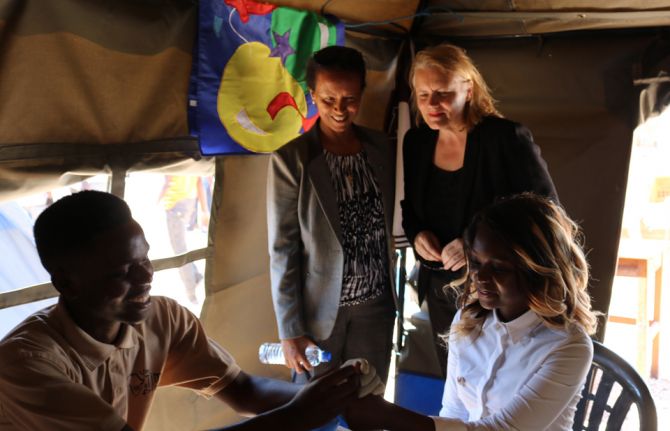
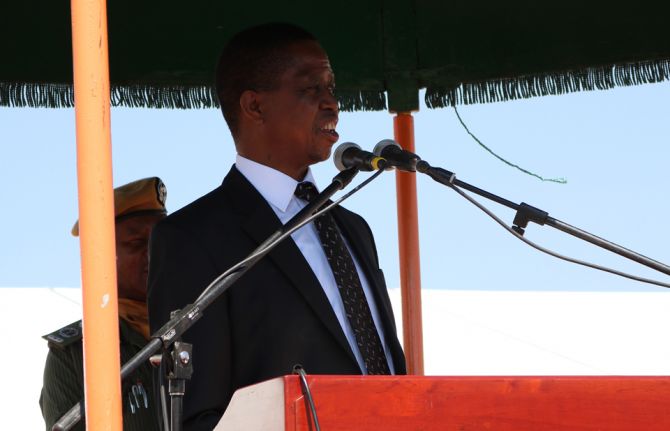

Update
Zambia offering antiretroviral therapy regardless of CD4 count
18 August 2017
18 August 2017 18 August 2017Zambia has adopted the World Health Organization’s (WHO) guidelines on offering all people living with HIV antiretroviral therapy regardless of their CD4 count. Edgar Chagwa Lungu, the President of Zambia, made the announcement at the launch of Zambia’s inaugural HIV Testing, Counselling and Treatment Day in Lusaka, Zambia. The day replaces the annual Voluntary Counselling and Testing Day, which was commemorated between 2006 and 2016.
Of the estimated 1.2 million people living with HIV in Zambia, only 67% know their status. There are therefore approximately 400 000 people in Zambia who do not know that they are living with HIV. This situation calls for intensive, innovative and effective HIV testing strategies that are in line with WHO and UNAIDS global guidance.
Zambia has adapted the WHO consolidated guidelines on HIV testing services in line with the key principles of consent, confidentiality, counselling, correct test results and connection to HIV prevention, treatment and care (the 5Cs principles).
UNAIDS and World Health Organization position on mandatory testing
The World Health Organization and UNAIDS do not support mandatory or compulsory testing of individuals on public health grounds.
The only mandatory testing that the World Health Organization and UNAIDS support are:
- Screening of donors prior to all procedures involving transfer of bodily fluids or body parts, such as artificial insemination, corneal grafts and organ transplant.
- Screening for HIV and other blood-borne infections of all blood destined for transfusion or for manufacture of blood products.
Zambia has been implementing provider-initiated testing and counselling since 2008. WHO and UNAIDS have welcomed the government’s call to reinforce the implementation of universal routine HIV testing in line with the 5Cs principles. In this regard, WHO and UNAIDS will continue to collaborate with the government and other stakeholders to provide technical support and guidance in the review and dissemination of HIV testing services protocols and standard operating procedures to ensure that they are in line with the global recommendations of human rights-based approaches.
Quotes
“We need to impress on our people the importance of repeating HIV testing, and ensuring that those who test positive are not stigmatized.”
“It is vital that people who test HIV-positive access treatment immediately, regardless of their CD4 count.”







